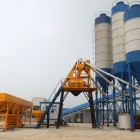The Michigan Recycling Coalition, has launched a state-wide recycling campaign, Recycle, MI, to increase recycling awareness and practices. The campaign is to help residents and businesses reduce waste, according to a press release. It encourages people to start recycling at their homes and work places, volunteer at recycling events or facilities and distribute information about recycling in their town, the campaign’s website explains. Recycle, MI has been promoted on radio stations that began this spring mostly in southeast Michigan and will continue in different regions throughout the summer, said Kerrin O’Brien, executive director of the group. “We really saw a need to promote recycling across the state – to unite Michiganders under this logo and message,” she said.






